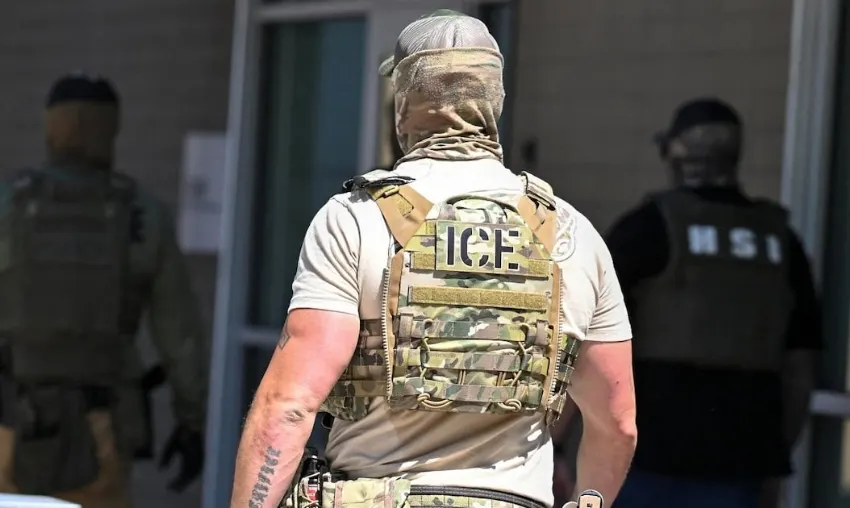Key West, Florida – It was a sunny morning in the Sunshine State when Vincent Scardina, a self-declared Trump supporter and owner of a small roofing company, suddenly realized what it means when election decisions have real consequences. A third of his workforce was intercepted by ICE on the way to work – six men from Nicaragua, arrested in a single sweep during rush hour. The charge: unlawful presence. The consequence: deportation. The collateral damage? A baffled contractor with an empty work truck.
Scardina, who just a few months earlier had vocally supported Trump’s tough immigration policies, now stood before the rubble of his own political convictions. “I did want the laws enforced,” he told a local reporter hesitantly, “just not on my guys.” His voice broke as he recounted the scene on the highway: flashing lights, uniforms, and six frightened workers handcuffed and led into a bus – not terrorists, not criminals, but men with toolboxes and lunch pails.
The Monroe County Sheriff’s Office confirmed the incident without emotion: they had simply helped “transport individuals for deportation.” For Scardina, it marked a moment of moral awakening. His work orders are piling up, customers are waiting – but his best workers now sit in jail or have already been deported. “They were like family,” he says today, with a tone caught somewhere between defiance and regret. After all, he had only wanted a president who stood for “law and order.”
What Scardina had overlooked: the concept of “law and order” doesn’t distinguish between his workers and those “others” warned about in right-wing talk shows. When Trump announces mass deportations, he’s not talking about abstract numbers – he means real people, even if they’re currently re-roofing a building. In Scardina’s case: a kindergarten in Homestead, deadline – missed!
Now the man who said he voted for Trump “out of economic common sense” is wondering whether it was truly sensible to toss his own workforce into the gears of the immigration bureaucracy. “I didn’t run into the wall,” he told us as well, “the wall came at me.” A sentence that may well find its place in the annals of ironic self-reflection under Trump’s second term.
As Scardina now desperately searches for new workers – quickly and, if possible, legally – his case may well be a blueprint for a growing dilemma across the U.S. economy: The politics you vote for isn’t always the policy you can work with. And sometimes, reality comes crashing down from the roof faster than you think.
